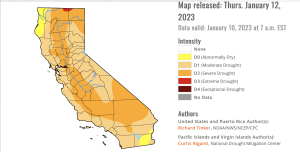On May 15, ASHRAE — the association of engineers who work in heating, air conditioning, and ventilation — set out its Proposed Standard 241P, Control of Infectious Aerosols.
They are soliciting comments on it until May 26 from the public. Links and instructions for comments can be found here.
This standard, which was put together over six months — lightning speed for ASHRAE, which often takes years to develop new standards due to its painstaking process — was built on years of work by the organization on indoor air quality and included some input from public health experts.
According to ASHRAE:
The standard will address long-range transmission of infectious aerosols and provides minimum requirements for:
- Equivalent outdoor air (combined effect of ventilation, filtration, and air cleaning) for use during Infection Risk Mitigation Mode
- Room air distribution to reduce risk
- Characterization of filter and air cleaner effectiveness and safety
- Commissioning, including development and implementation of a Building Readiness Plan
- System operation in Infection Risk Mitigation Mode during periods of high risk
- Maintenance tasks and their minimum frequency
- Residences and health care facilities
ASHRAE issued some recommendations early in the pandemic that provided guidelines for the kind of filtration that should be used in buildings to minimize transmission of airborne viruses. Those guidelines, though very good, were based on ongoing work on indoor air quality and did not include the kind of comprehensive work they brought to this new standard.
These standards, once incorporated into building codes and other regulations for buildings, will be a major step forward in making sure that the indoor air is safe to breathe. In a world in which many people spend most of their time indoors, that is a crucial element of public health.
These standards will minimize the transmission of airborne diseases including, but not limited to, Covid. Continue reading “Fixing the Air We Breathe Indoors”…


